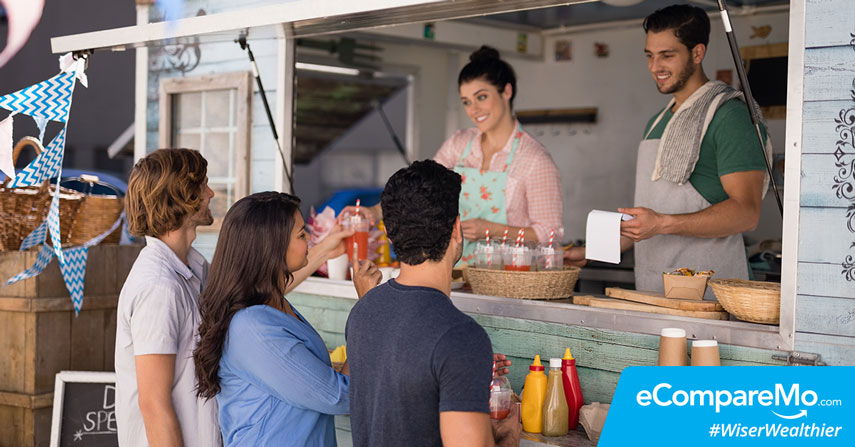How To Start Your Own Food Park Stall Business
2 min readYou can never go wrong with a food business. It’s a given that Filipinos love to eat, and there’s a good chance that you can line your pockets if you fill their bellies well.
And if you want to become part of the local food landscape and enter the entrepreneurial arena, the rise of the food park business is a timely experimental playground.
“Food parks give small-scale businesses the venue to thrive and profit from a captive market setup with relatively lower costs compared to taking out a lease at bigger establishments,” Prime Philippines Managing Director Jet Yu said in an article in The Manila Times. â€This is timely as business registration of both old and new businesses continue to increase.† That they cater to millennials as well offers a one-two punch.
Geremy Kho, owner of The Good Tapa in Pasig, told Entrepreneur Philippines in an interview that they opened their weekend food bazaar stall with a P20,000 capital. They opened their first food park branch after a few months using their P100,000 savings, which they recovered in just two weeks.
Its income-generating possibilities now firmly established, go full steam ahead with your food bazaar stall by checking this comprehensive guide below.
The master plan
Make a SWOT Analysis. Determine the strengths, weaknesses, opportunities, as well as threats to your business. Top priority: Prepare your menu. Are you a culinary connoisseur? Â Perfect your specialties, or make like a mad scientist in the kitchen. According to RJ Ledesma of Mercato Centrale, modern continental fusion, turning regular food to premium, artisanal and handmade offerings, and lastly, heirloom or home-made dishes, are the trend these days.

Make a breakdown of your expenses–from physical store construction to utensils–to figure out the actual capital you will need to shore up. Pro-tip: Aside from the store and products, you need to account for the required cash buffer for the space rent, which is typically two months advance and one month deposit.
Get all the legalities of operation handled. To make your business all legit, it is mandatory to secure the following:
- Mayor’s Permit
- Sanitation Permit
- Barangay Clearance
- Department of Trade and Industry (DTI) Business Name (BN) Registration Certificate
- Tax Identification Number (TIN) at the Bureau of Internal Revenue (BIR)
If you will hire people to man and operate your stall, you will need to comply with SSS, PhilHealth, Pag-Ibig and Department of Labor and Employment (DOLE) Employer’s Registration.
The Food Park setting: Site selection
Accessibility and ease of parking. Make your business customer-centric. Always consider the convenience of consumers. Pick a strategically located food park they’ll flock to.
Target market. Are there any schools, universities, offices or any establishments near the area? Is the food park just along the way for customers who would take home food?
Cost-efficiency. Compare the inclusions of your lease in the food park. Here is a helpful checklist of crucial details to consider:
- Curb appeal or physical aesthetics
- Individual water and electric meter per slot
- A reasonable length of time to operate
- Sizeable number of seating capacity
- A clean common restroom
- On-site security guard and janitorial staff.
Kitchen essentials
- Chiller
- Freezer
- Deep Fryer
- 2-burner gas stove
- 2-m gas tank
- Rice cooker
- Ice buckets
- Griller
- Spoon, fork, glass, knives, plates
- Water dispenser
- Water filter
- Sizzling plates
- Exhaust fan
Store facade
- Spot Lights
- Signages
- Strip light
Costs of space
Kiosk. P500/day, or around P15,000 per month
Container van (6 square meter). P28,000 per month
Slots. Around P15,600 to P29,200 per month
